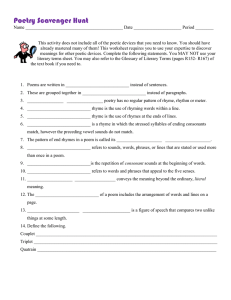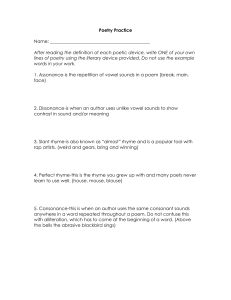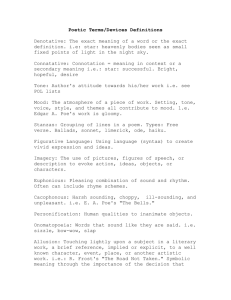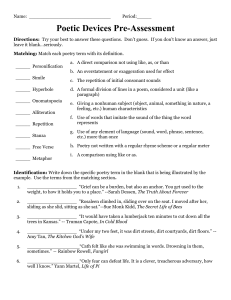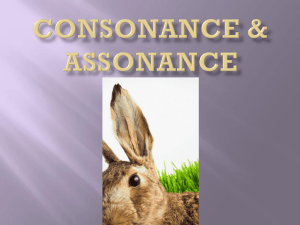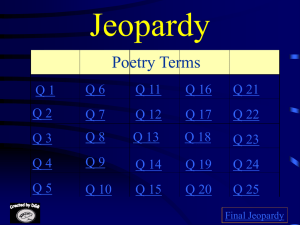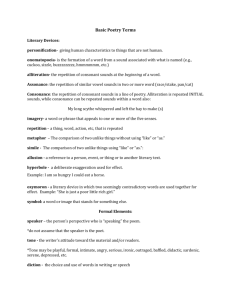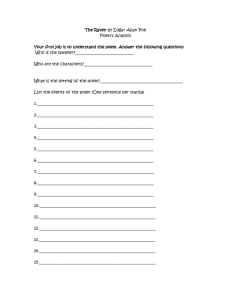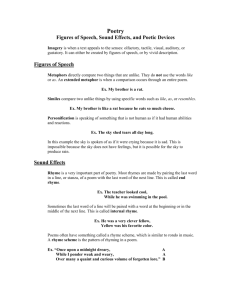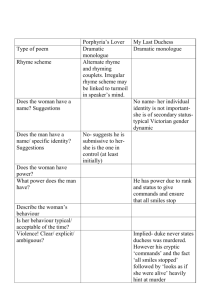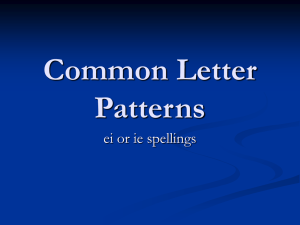Sound Devices in Poetry - Avon Community School Corporation
advertisement
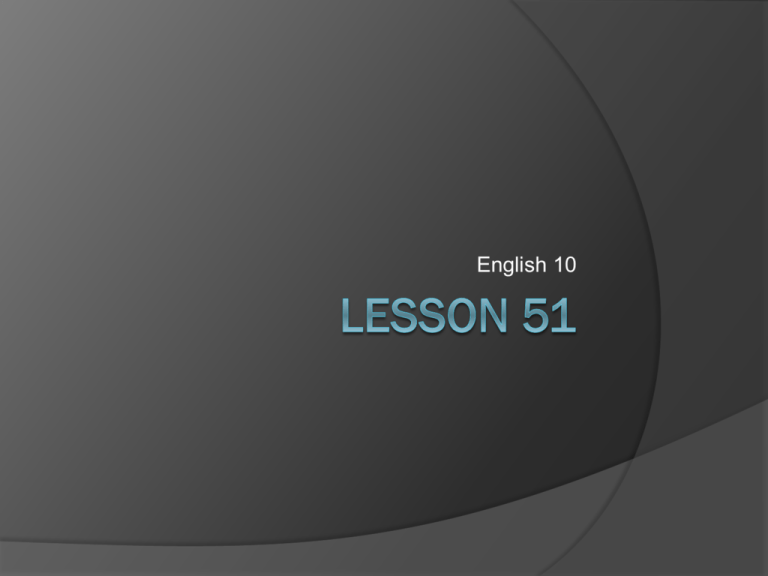
English 10 10 Steps Mastery Test 5 No talking. No iPods. Turn into the tray when finished and pick up the Chapter 6 notes handout to work on until everyone finishes. Finish vocab. flashcards Poem share time? Poetry Unit Rhyme End rhyme Rhymes at the ends of lines of poetry ○ From what I’ve tasted of desire ○ I hold with those who favor fire. Internal rhyme Rhyming words within one line ○ Once upon a midnight dreary, while I pondered, weak and weary, Slant Rhyme Rhymes that are close, but not exact Hope is the thing with feathers /That perches in the soul, And sings the tune without the words,/ And never stops at all. Alliteration Repeated sounds at the beginning of words When I watch you Wrapped up like garbage Sitting, surrounded by the smell Of too old potato peels Onomatopoeia Word or phrase that imitates or suggests the sound it describes I heard a fly buzz—when I died-- Assonance Repeated vowel sounds in words No shutter’d room or school can commune with me Consonance Repeated consonants before and after different vowel sounds She passed the salley gardens with little snow-white feet. “Fire and Ice” by Robert Frost Some say the world will end in fire, Some say in ice. From what I’ve tasted of desire I hold with those who favor fire. But if it had to perish twice, I think I know enough of hate To know that for destruction ice Is also great And would suffice. “Fire and Ice” p. 656 What kind of rhyme is used in the poem? 2. Give examples of alliteration, assonance, or consonance in the poem. 3. Why does the author use these devices? What is the effect of his word choice? 4. Why does Frost believe that fire will be the cause of end of the world? 5. Fire or ice? What do you think? 1. Vocabulary Practice Homework
